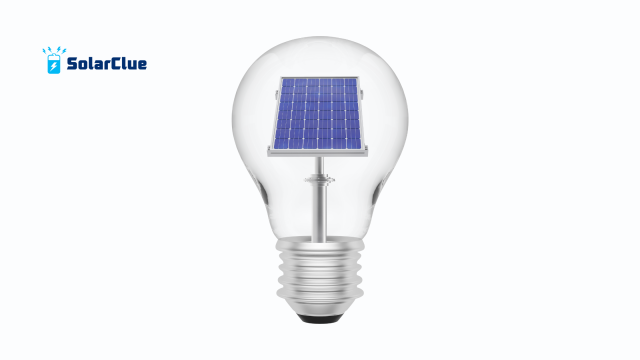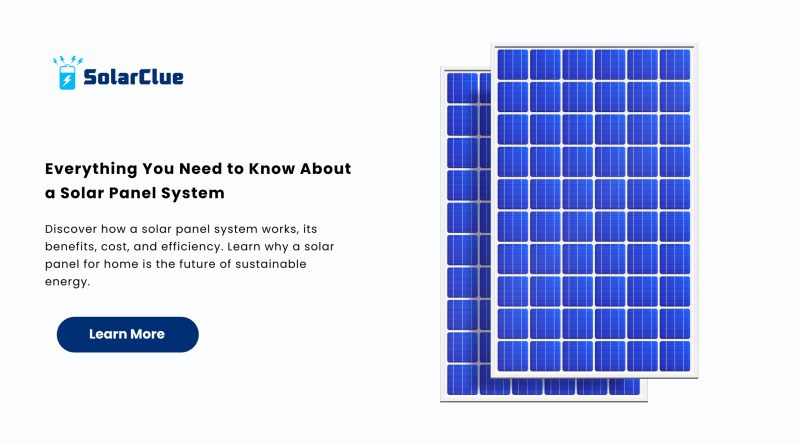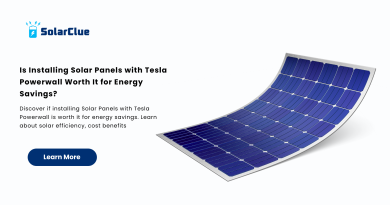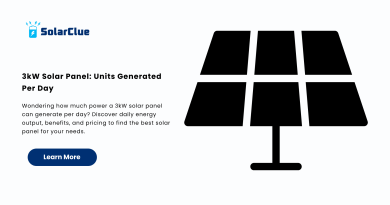Everything You Need to Know About a Solar Panel System
A solar panel system is a renewable energy setup that converts sunlight into electricity using photovoltaic (PV) technology. It’s becoming a go-to solution for homes and businesses looking to reduce electricity bills and carbon footprint. Whether you’re considering a solar panel for home or want to understand how the solar power system works, this guide will walk you through everything in simple terms.
Table of Contents
- 1 How Does a Solar Panel System Work?
- 2 Components of a Solar Panel System
- 3 Benefits of Installing a Solar Panel System
- 4 Choosing the Right Solar Panel for Home
- 5 How to Calculate the Solar Panel System Size for Your Home
- 6 Solar Panel Efficiency Explained
- 7 Types of Solar Panel Systems
- 8 Cost of Installing a Solar Panel System in India
- 9 Common Myths About Solar Panels
- 10 FAQs
How Does a Solar Panel System Work?
At the core of every solar panel system are solar panels made from semiconductor materials like silicon. These panels absorb sunlight and generate direct current (DC) electricity. The system includes an inverter that converts DC into alternating current (AC), which powers your home or business. If you have a solar power system with a battery, excess electricity can be stored for use at night or during cloudy days.
Components of a Solar Panel System
A complete solar panel system includes:
-
Solar Panels: These capture sunlight and produce electricity.
-
Inverter: Converts DC to usable AC electricity.
-
Mounting Structures: Support panels on rooftops or the ground.
-
Battery (optional): Stores excess power for later use.
-
Net Meter: Measures the electricity exported or imported from the grid.
Each part plays a crucial role in determining the solar panel efficiency and overall system performance.
Benefits of Installing a Solar Panel System
1. Cost Savings
By installing a solar panel for home, you reduce dependency on grid electricity, which leads to lower monthly bills.
2. Eco-Friendly
A solar power system reduces greenhouse gas emissions, making it a great step toward a sustainable future.
3. Government Subsidies
In India, several government schemes provide financial incentives for solar installations, making the transition easier.
4. Low Maintenance
Solar systems are long-lasting and need minimal upkeep.
5. Energy Independence
You gain control over your energy use, especially with battery storage and net metering.
Choosing the Right Solar Panel for Home
Not all solar panels are created equal. Here are a few factors to consider:
-
Wattage and Size: Higher wattage panels generate more power.
-
Panel Type: Monocrystalline panels offer better solar panel efficiency compared to polycrystalline.
-
Brand Reputation: Choose manufacturers with good reviews and warranty terms.
-
Installation Partner: Opt for professionals to ensure proper system setup.
How to Calculate the Solar Panel System Size for Your Home
Start by checking your monthly electricity consumption in kWh. For instance, if your monthly usage is 300 kWh, you’ll need a solar panel system that can generate about 10 kWh per day. Depending on your location and sunlight hours, this may require a 2.5 kW to 3 kW system. Consulting a solar expert is always helpful to tailor the system to your needs.

Solar Panel Efficiency Explained
Solar panel efficiency measures how much sunlight a panel can convert into electricity. For example, if a panel has 20% efficiency, it can convert 20% of sunlight it receives into usable power. Factors affecting efficiency include:
-
Type of panel (monocrystalline > polycrystalline)
-
Temperature (too much heat can lower efficiency)
-
Shading and dirt accumulation
-
Quality of inverter
Higher solar panel efficiency means more energy production from less space.
Types of Solar Panel Systems
1. Grid-Tied
Connected to the electricity grid. Excess power is sent to the grid, and you can draw power when needed.
2. Off-Grid
Independent systems that rely on batteries for power storage. Suitable for remote areas.
3. Hybrid
A mix of both grid-tied and off-grid systems, offering both flexibility and backup power.
Cost of Installing a Solar Panel System in India
The cost of a solar panel system depends on the size, type, and brand. On average:
-
1 kW system: ₹70,000 to ₹1,00,000 (without battery)
-
3 kW system: ₹2,10,000 to ₹2,80,000
-
5 kW system: ₹3,50,000 to ₹5,00,000
Adding batteries or smart monitoring increases the cost. However, state subsidies can reduce the overall expense significantly.
Common Myths About Solar Panels
Myth 1: Solar panels don’t work on cloudy days
Truth: They do—though production may be reduced.
Myth 2: Solar systems require constant maintenance
Truth: Minimal cleaning and annual inspections are enough.
Myth 3: Solar panels will damage my roof
Truth: Professional installations are completely safe and sometimes even protect your roof.
FAQs
Q1. What is the lifespan of a solar panel system?
Most systems last 25–30 years with over 80% performance even after 25 years.
Q2. Do solar panels work during a power outage?
Only if you have an off-grid or hybrid system with battery backup.
Q3. How much space is needed for a 1 kW solar panel system?
Typically around 100 sq. ft. of unshaded roof area.
Q4. Can I run an AC on solar power?
Yes, provided your system size matches your appliance consumption.
Q5. What maintenance does a solar panel system need?
Just occasional cleaning of panels and annual checks of wiring and inverter.
A solar panel system is one of the smartest investments you can make for a sustainable and cost-efficient future. With high solar panel efficiency, decreasing installation costs, and rising electricity prices, going solar is no longer an option—it’s a necessity.
Want to know which solar system is perfect for your home? Get personalized recommendations and the best deals on solar panels, only at SolarClue and for more detailed guides, visit blog.solarclue.com.




